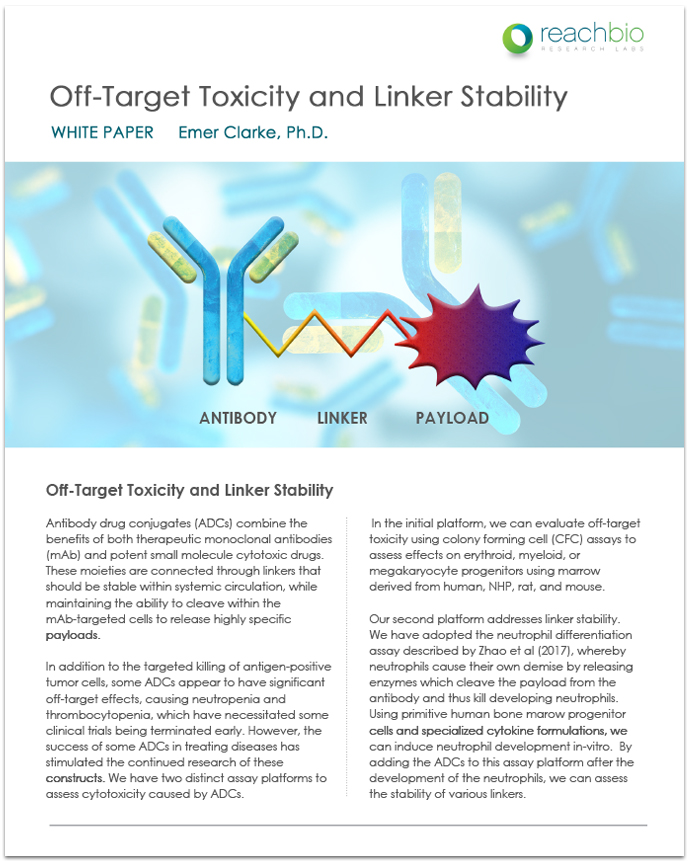Off-Target Toxicity and Linker Stability
Antibody drug conjugates (ADCs) combine the benefits of both therapeutic monoclonal antibodies (mAb) and potent small molecule cytotoxic drugs. These moieties are connected through linkers that should be stable within systemic circulation, while maintaining the ability to cleave within the mAb-targeted cells to release highly specific payloads.
In addition to the targeted killing of antigen-positive tumor cells, some ADCs appear to have significant off-target effects, causing neutropenia and thrombocytopenia, which have necessitated some clinical trials being terminated early. However, the success of some ADCs in treating diseases has stimulated the continued research of these constructs.
We have two distinct assay platforms to assess cytotoxicity caused by ADCs.
In the initial platform, we can evaluate off-target toxicity using colony forming cell (CFC) assays to assess effects on erythroid, myeloid, or megakaryocyte progenitors using marrow derived from human, NHP, rat, and mouse.
Our second platform addresses linker stability. We have adopted the neutrophil differentiation assay described by Zhao et al (2017), whereby neutrophils cause their own demise by releasing enzymes which cleave the payload from the antibody and thus kill developing neutrophils.

